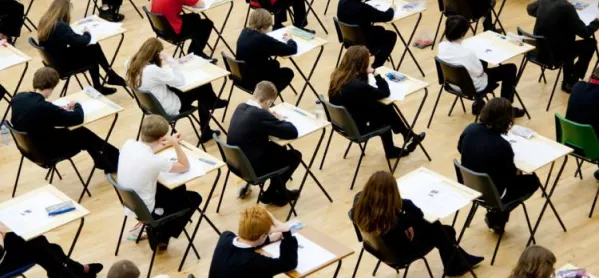1. Entries for GCSE English literature and language have rocketed
GCSE entries in 2017 (5.1 million) increased by more than 3 per cent compared to 2016. The increase is mostly in English language and English literature.
The entries for English language rose by 52 per cent compared to last year.
Ofqual says the rise in entries to English GCSE is due to the removal of iGCSEs from league tables, which has encouraged schools to move back to GCSEs.
Meanwhile, entries for English literature have gone up by 48 per cent in one year.
Progress 8 - the government’s new accountability measure - may also have played a part in the rise as it double weights English if a student has taken both English language and literature, with the highest grade counting.
2. Entries in non-EBacc subjects decreased by 11 per cent
Entries for all non-EBacc subjects at GCSE showed a decline in 2017. The biggest drops include humanities, statistics, and leisure and tourism.
Ofqual says this overall decline indicates that schools are focussing more on the delivery of EBacc subjects than those subjects which do not count towards the EBacc.
Progress 8 and Attainment 8 measures are also likely to be influencing these patterns as their calculation can only include a maximum of three non-EBacc GCSEs.
3. Entries in EBacc subjects rose overall by 9 per cent
There was a 12 per cent increase in year 11 entries for Science.
Meanwhile, there has been a 9 per cent increase in entries for GCSE computing - a new qualification which counts as an EBacc subject.
However, entries for modern languages still continue to fall. The figures show that entries to German at GCSE fell by 12 per cent, French 10 per cent, and Spanish 3 per cent.
4. But overall entries to science GCSEs fell
The entries to science GCSEs dropped by 26 per cent - despite the rise in Year 11 entries.
Ofqual said the drop was “due to Year 10 students generally not taking it in the numbers seen in previous years and waiting until 2018 for the reformed qualifications”.
5. AS entries have dropped substantially
Entries for all AS subjects fell by 42 per cent, from 1,143,950 in 2016 to 660,200 in 2017.
Some of the largest percentage decreases were in engineering, performing/expressive arts and drama.
These falls in AS entries are due to a number of factors including the decoupling of AS from A-levels as part of the government’s reforms of AS and A-levels.
Want to keep up with the latest education news and opinion? Follow Tes on Twitter and like Tes on Facebook




